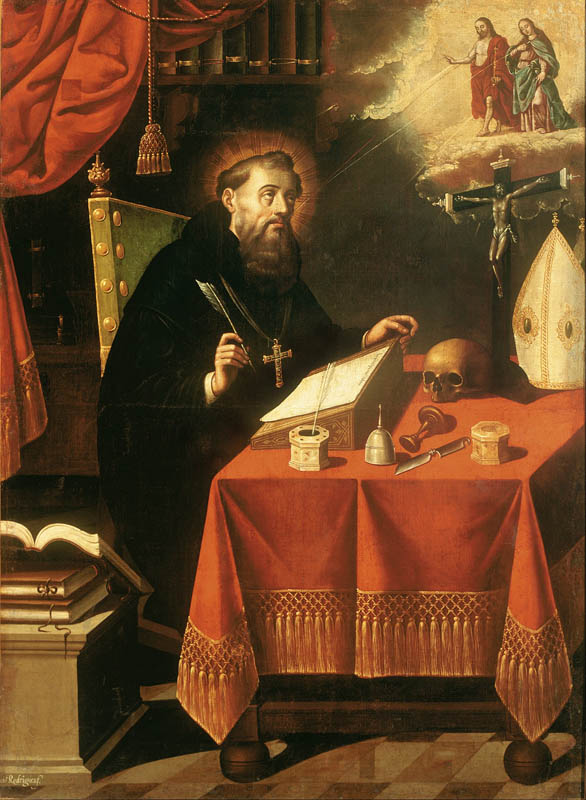A Christian at 33, a priest at 36, a bishop at 41: Many people are familiar with the biographical sketch of Augustine of Hippo, sinner turned saint.

Image – Antonio Rodriguez – 1650
Augustine was born in the year 354 AD in the municipium of Thagaste (now Souk Ahras, Algeria) in Roman Africa. His mother, Monica or Monnica, was a devout Christian; his father Patricius was a Pagan who converted to Christianity on his deathbed. Scholars generally agree that Augustine and his family were Berbers, an ethnic group indigenous to North Africa, but that they were heavily Romanized, speaking only Latin at home as a matter of pride and dignity.
In the summer of 386, at the age of 31, after having heard and been inspired and moved by the story of Ponticianus’s and his friends’ first reading of the life of Saint Anthony of the Desert, Augustine converted to Christianity. As Augustine later told it, his conversion was prompted by a childlike voice he heard telling him to “take up and read” (Latin: tolle, lege), which he took as a divine command to open the Bible and read the first thing he saw. Augustine read from Paul’s Epistle to the Romans – the so-called “Transformation of Believers” section, consisting of chapters 12 through 15 – wherein Paul outlines how the Gospel transforms believers, and the believers’ resulting behaviour. The specific part to which Augustine opened his Bible was Romans chapter 13, verses 13 and 14, to wit:
Not in rioting and drunkenness, not in chambering and wantonness, not in strife and envying, but put on the Lord Jesus Christ, and make no provision for the flesh to fulfill the lusts thereof.
He later wrote an account of his conversion – his very transformation, as Paul described – in his Confessions (Latin: Confessiones), which has since become a classic of Christian theology and a key text in the history of autobiography. This work is an outpouring of thanksgiving and penitence. Although it is written as an account of his life, the Confessions also talks about the nature of time, causality, free will, and other important philosophical topics. The following is taken from that work:
“Late have I loved Thee, O Lord; and behold,
Thou wast within and I without, and there I sought Thee.
Thou was with me when I was not with Thee.
Thou didst call, and cry, and burst my deafness.
Thou didst gleam, and glow, and dispell my blindness.
Thou didst touch me, and I burned for Thy peace.
For Thyself Thou hast made us,
And restless our hearts until in Thee they find their ease.
Late have I loved Thee, Thou Beauty ever old and ever new.”